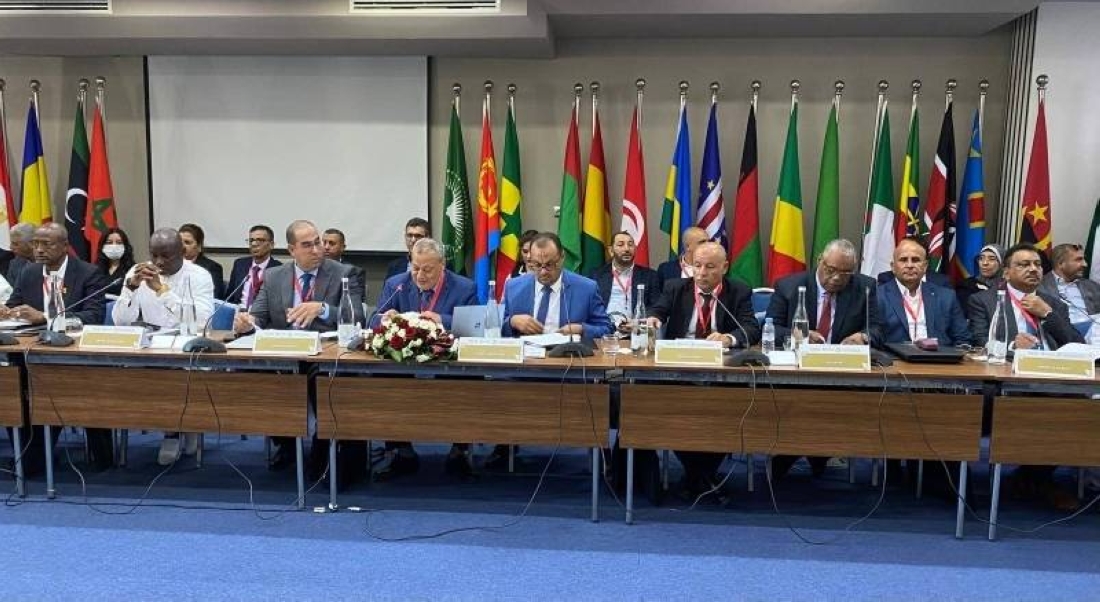The first congress of the African Union of Transport and Logistics Organizations (UAOTL) in Tangier highlighted the need to strengthen transport and logistics infrastructure in Africa. Participants agreed on the importance of regional cooperation and the crucial role of the private sector for sustainable transformation. A closer look.
The inaugural congress of the African Union of Transport and Logistics Organizations (UAOTL) took place today in Tangier, alongside the Logiterr 2024 trade fair. This event brought together prominent figures and representatives from several African nations, all driven by a common goal: to improve transport and logistics infrastructure across the continent.
A Cooperation Framework for the Future
In his opening speech, Mustapha Chaoune, president of UAOTL, emphasized the significance of this first meeting since the founding conference in 2018 in Marrakech. “Today, we are gathered in Tangier to address the challenges in the transport and logistics sectors and to envision its future,” he said. He praised the commitment of countries actively supporting the African Union in this project, asserting that "this event marks a crucial step after years of preparation, aimed at harmonizing regulations for the African Union of Transport and Logistics Organizations, in alignment with the objectives, programs, and agreements adopted by the Union." According to him, the goal is to develop the sector, enhance skills, increase the productivity of transport companies—considered the backbone of national economies—and facilitate trade. “This will also strengthen the bonds of friendship and cooperation while allowing African countries to share their experiences,” he added.
The Infrastructure Challenge: A Priority
Sierra Leone’s Minister of Public Administration and Political Affairs, Amara Kallon, focused on the infrastructure challenges facing the continent. “Our road, rail, and port networks are often fragmented, creating bottlenecks that slow down regional trade,” he explained. He also stressed the importance of building sustainable and resilient supply chains, which will not only improve connectivity but also contribute to the structural transformation of Africa. According to him, the solution lies in an integrated and sustainable model that takes into account the environmental and economic challenges the continent faces.
A Crucial Public-Private Partnership
Several speakers highlighted the key role of the private sector in developing transport and logistics infrastructure. Chaoune recalled that since the creation of the African Union of Multimodal Transport and Logistics Organizations in 2018, private initiatives have been central to efforts to improve connectivity between African nations. He also emphasized the importance of the African Continental Free Trade Area (AfCFTA) in facilitating trade and economic exchanges between countries on the continent.
Youth and Innovation at the Heart of the Strategy
Special attention was given to training young African talent. “Africa must leverage its youth to ensure the future of its infrastructure,” noted the president of the Nigerian Association of Road Transport Owners (NARTO). Digitalization and innovation were identified as major drivers for sector development, with a focus on the need to train young people in the fields of transport and logistics.
Towards a Connected and Sustainable Africa
This congress marks a decisive step for the African Union of Transport and Logistics Organizations, which aims to build a connected, prosperous, and sustainable Africa. The discussions and exchanges held in Tangier pave the way for the structural transformation of Africa's economy, based on modern infrastructure, strengthened cooperation between nations, and a strong commitment from the private sector. This first congress, hosted by Morocco—a key actor and host country for this initiative—reaffirmed the importance of African solidarity in meeting the challenges of the future. Participants hope this meeting will be the starting point for sustainable solutions for the entire continent.











